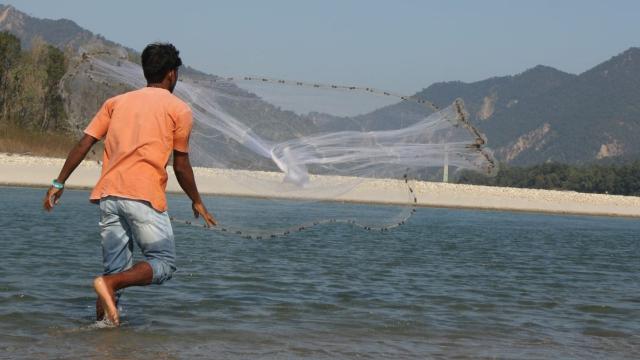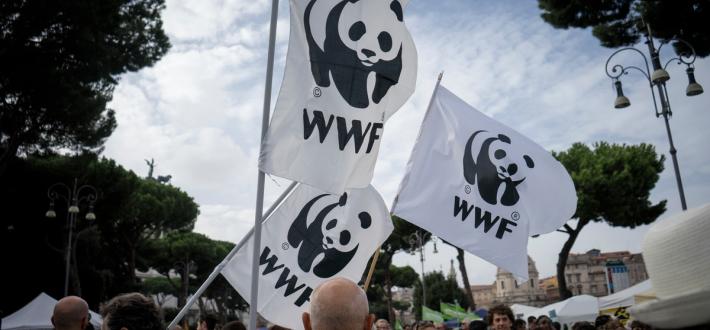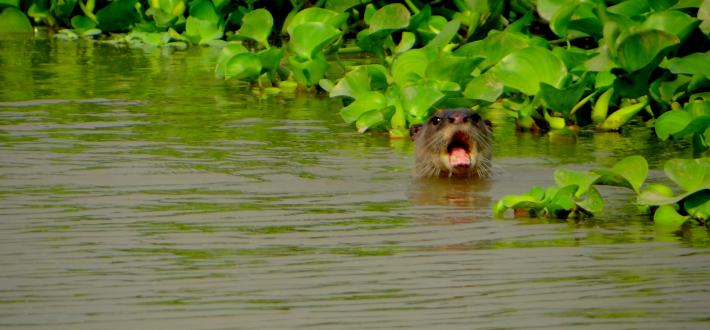
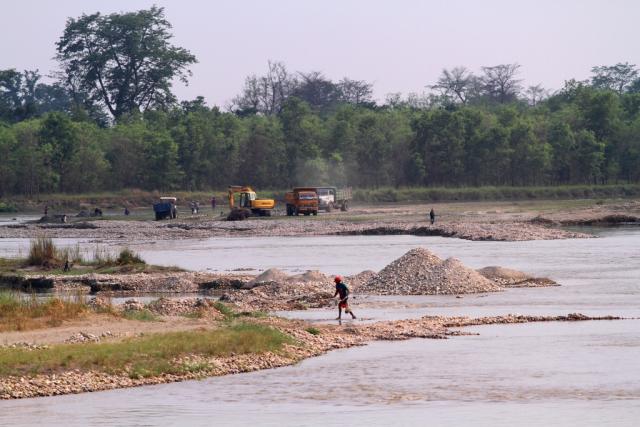
Project overview
The Lower Karnali Watershed in Nepal's Terai Arc Landscape is home to indigenous river-dependent communities and diverse aquatic biodiversity. However, illegal, and destructive fishing and habitat disturbance caused by river aggregates extraction have severely depleted fish populations, threatening the biodiversity as well as the traditional livelihoods of Tharu and Sonaha communities.
With support and funding from the UK Government through the Darwin Initiative, we’re working with indigenous river dependent communities to engage in community river stretch management groups to manage at least 10 kms of the river alongside local government authorities, improving their knowledge of river resource conservation and ensuring implementation of inclusive river management plans. This effort will promote more sustainable fishing practices, protect fish spawning sites, and contribute to the increased abundance of fish. By doing so, we’re not only securing food and livelihoods for communities but also supporting otter populations in the Lower Karnali Watershed.
The project is a collaborative effort involving the Nepal Government, WWF Nepal and local partners Sonaha Bikash Samaj (SBS), Freed Kamaiya Women Development Forum (FKWDF), Dolphin Conservation Center (DCC) and the Small Mammals Conservation and Research Foundation (SMCRF).
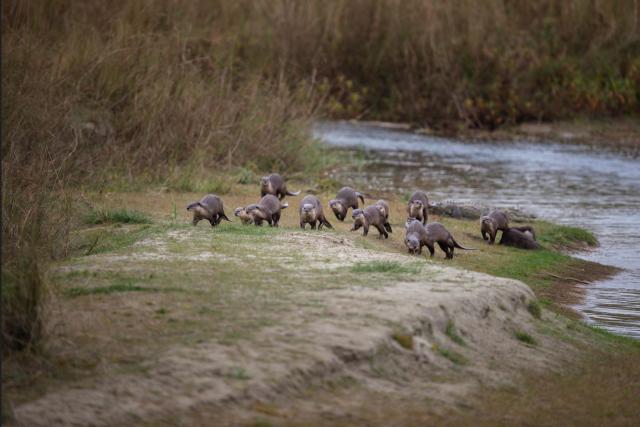
Why we are doing it
The watershed provides a rich mosaic of habitats that includes rivers, riverine forests, floodplain grasslands and oxbow lakes which is suitable for a large number of fish species and provides habitat for many IUCN Red List species such as Gharial Crocodile (critically endangered), Mugger Crocodile (vulnerable), Gangetic River Dolphin (endangered) and Smooth-Coated Otter (vulnerable).
Otters are vital indicators of aquatic health, reflecting the condition of rivers, lakes, and wetlands. Their decline often signals environmental degradation, overfishing, or pollution, affecting countless other wildlife species and the riverine communities dependent on them. This project is driven by the urgency to protect otters and the broader ecosystem they represent.
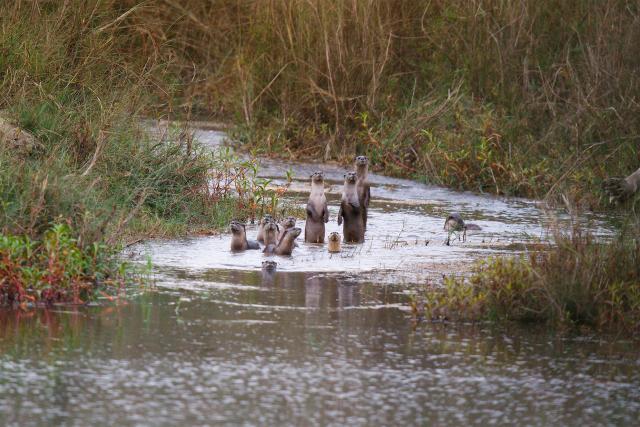
Project impact
Our project aims to secure viable populations of otters in Western Nepal and improve the wellbeing of 200 marginalised river dependent households. Through inclusive community-based conservation of freshwater resources and livelihood diversification, and the conservation of otter habitats by addressing the challenges of intensive fishing practices, habitat destruction, and unsustainable river aggregates extraction. Furthermore, the project will work on institutional capacity strengthening of government agencies and creating enabling conditions for otter conservation.
Over the last year, illegal and destructive fishing has declined by 50% in the area where the project is taking place.
